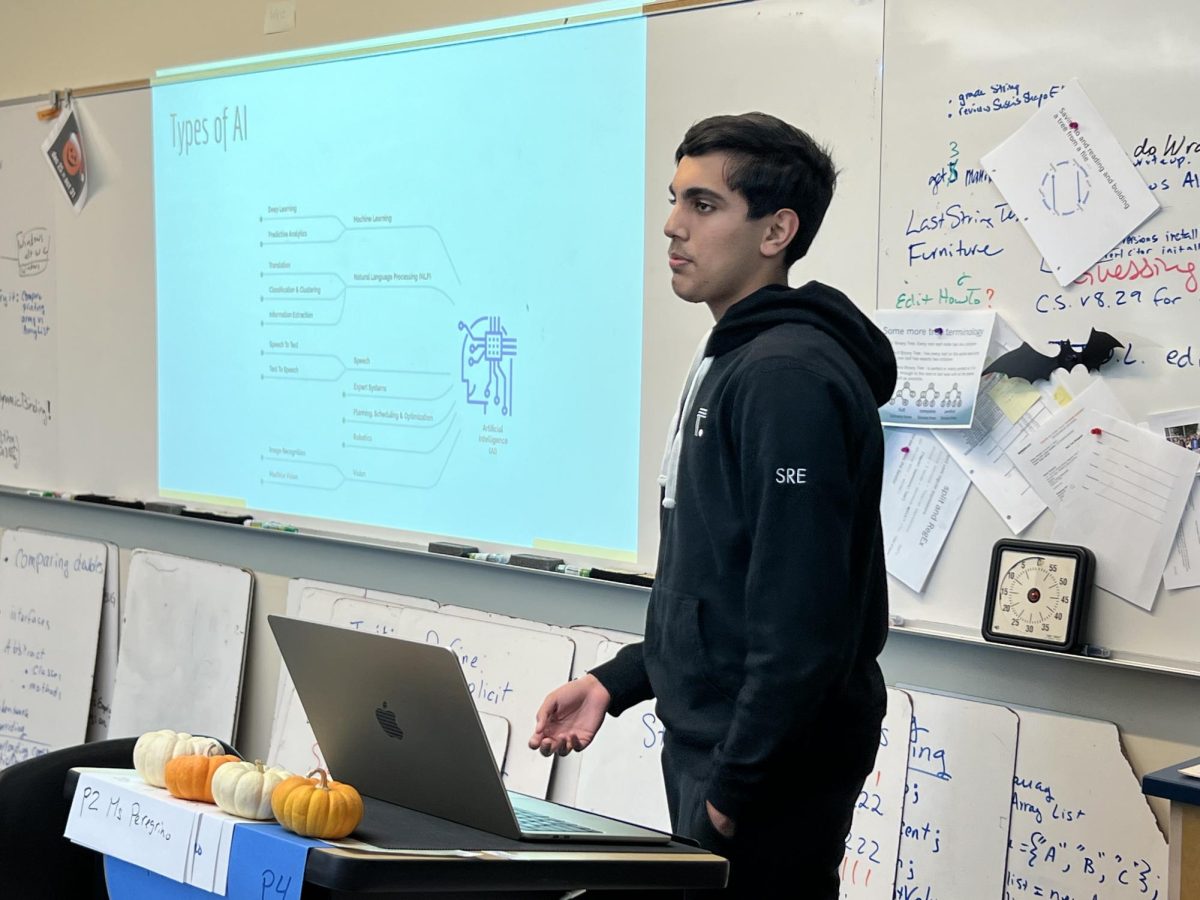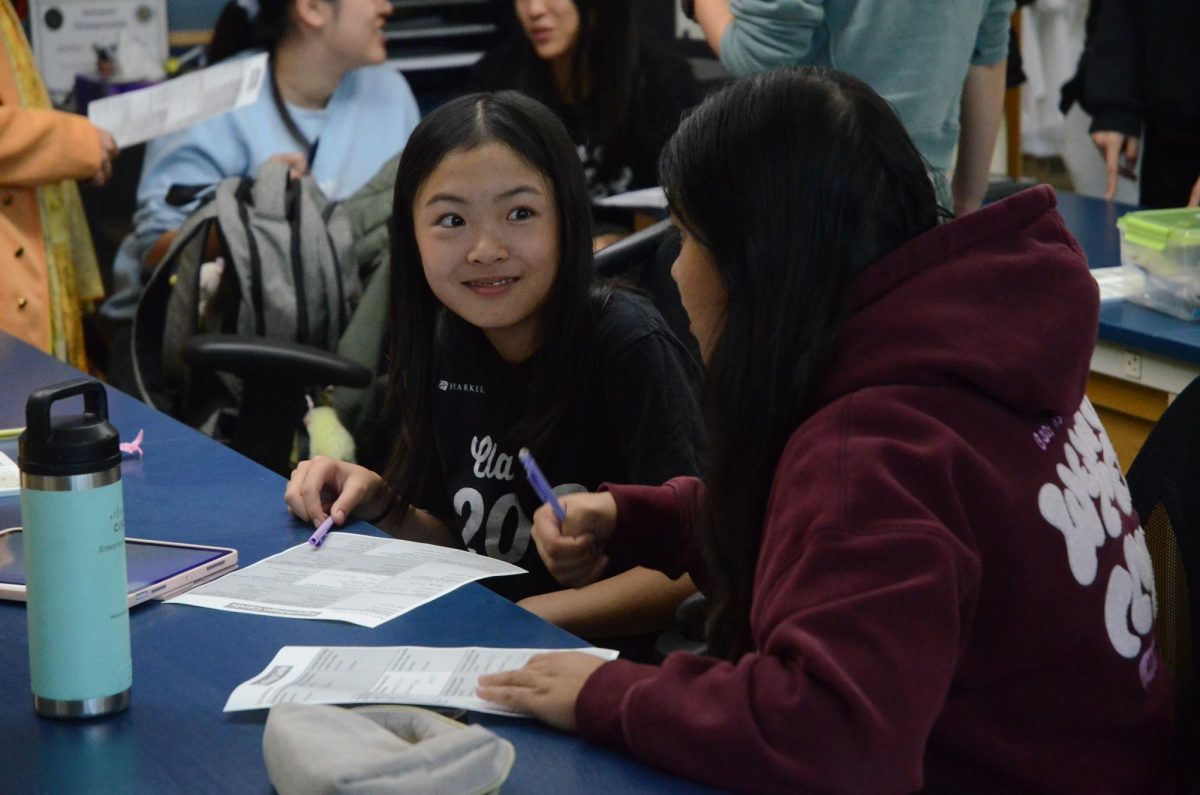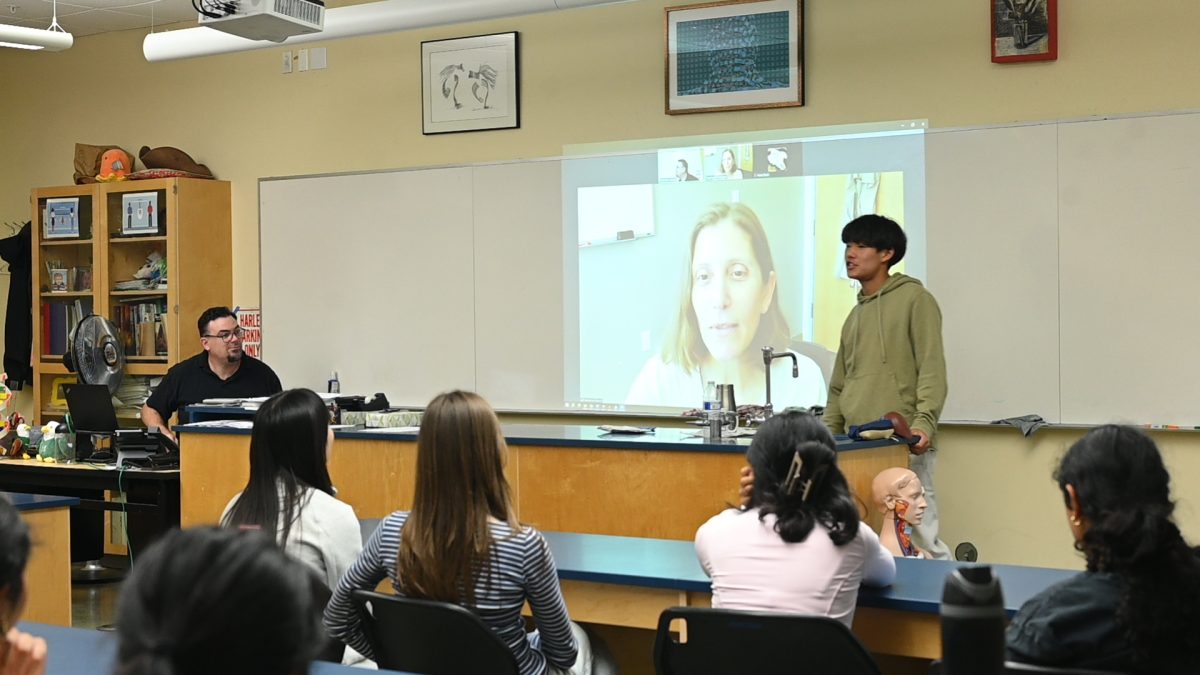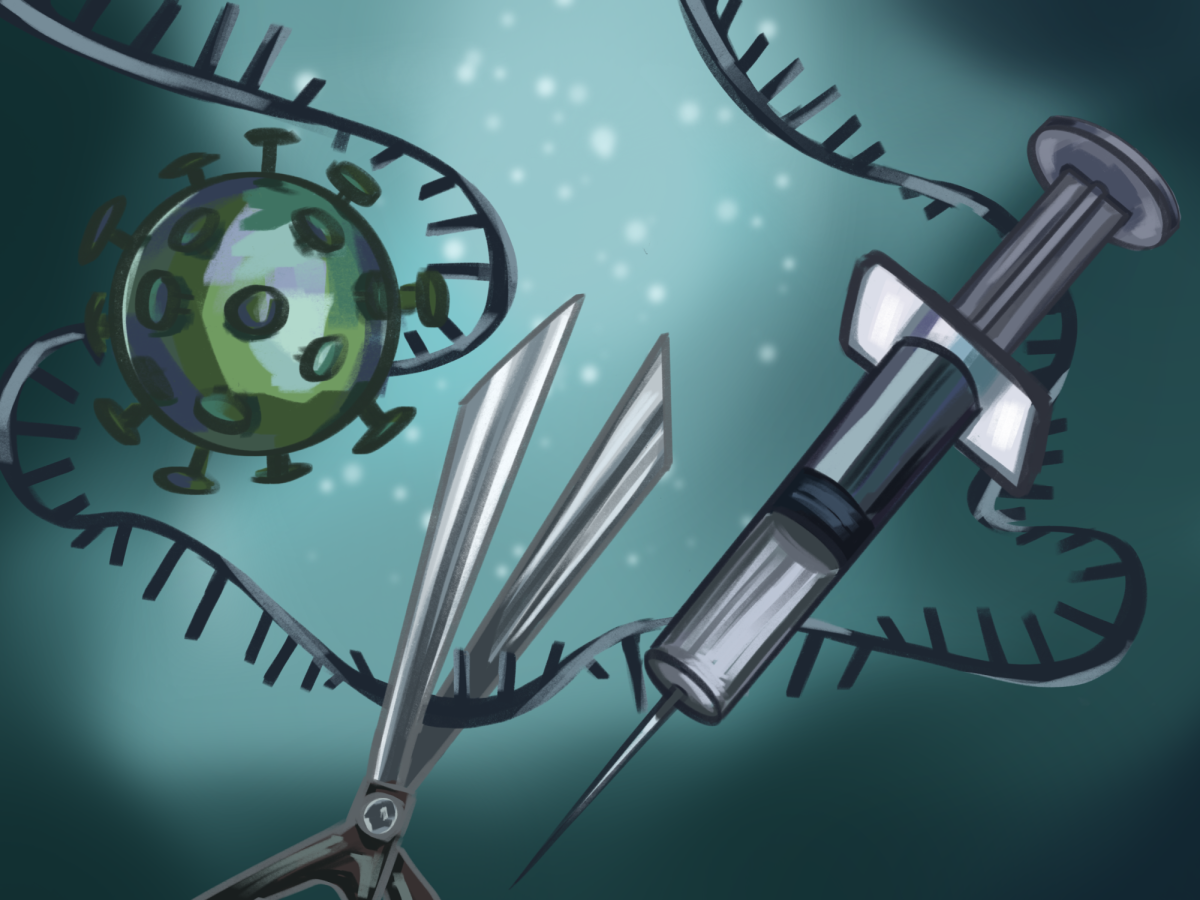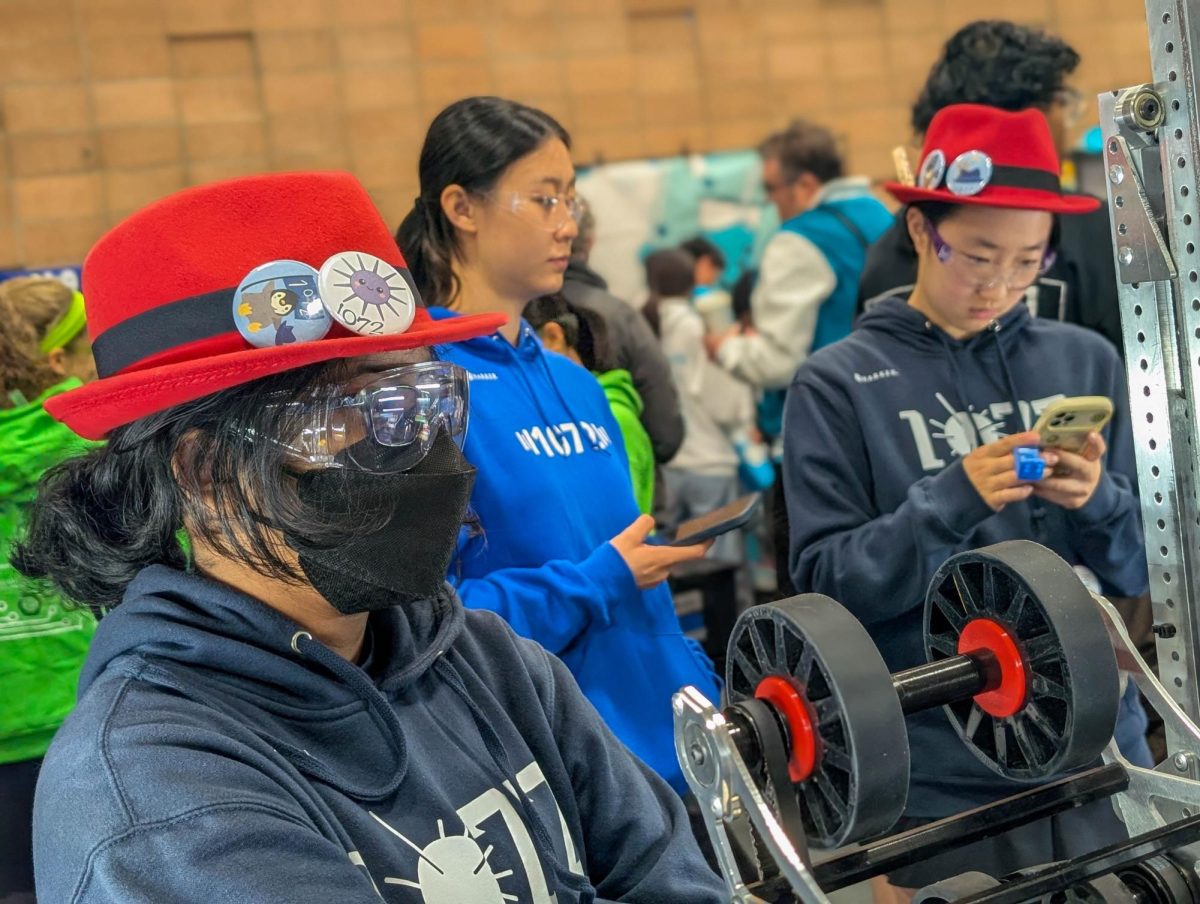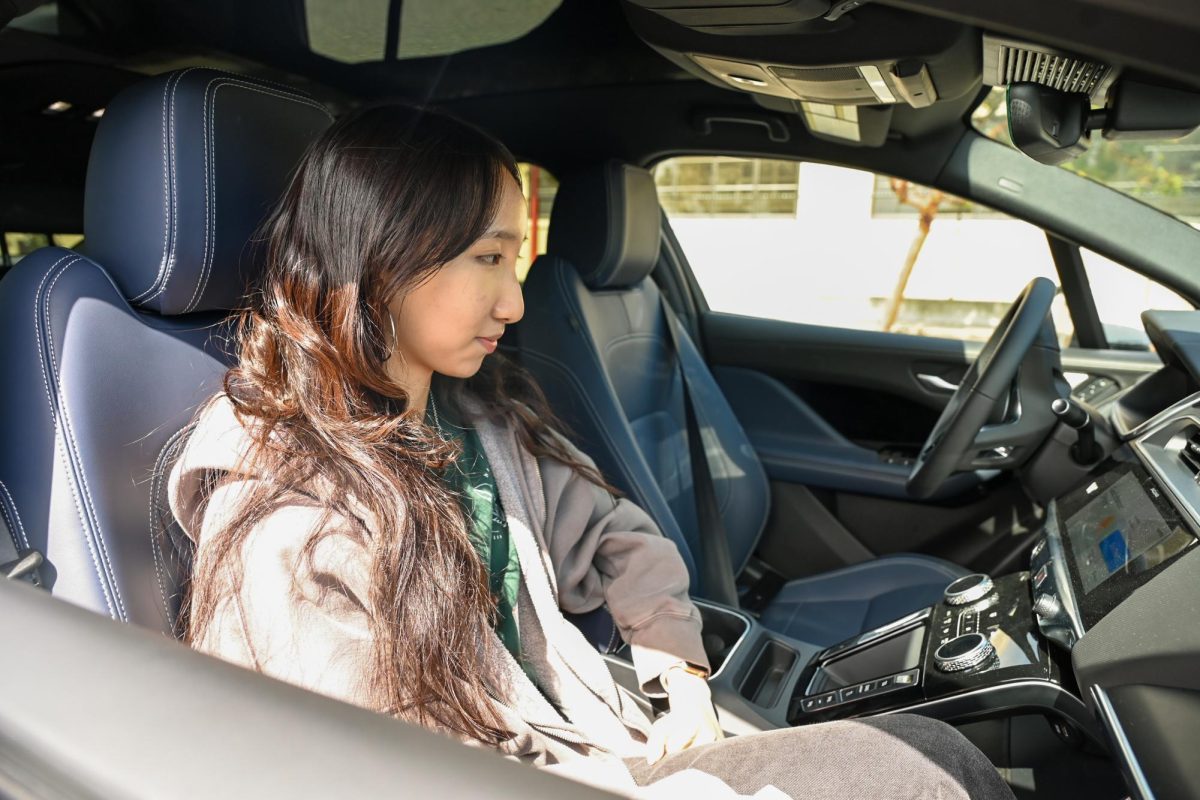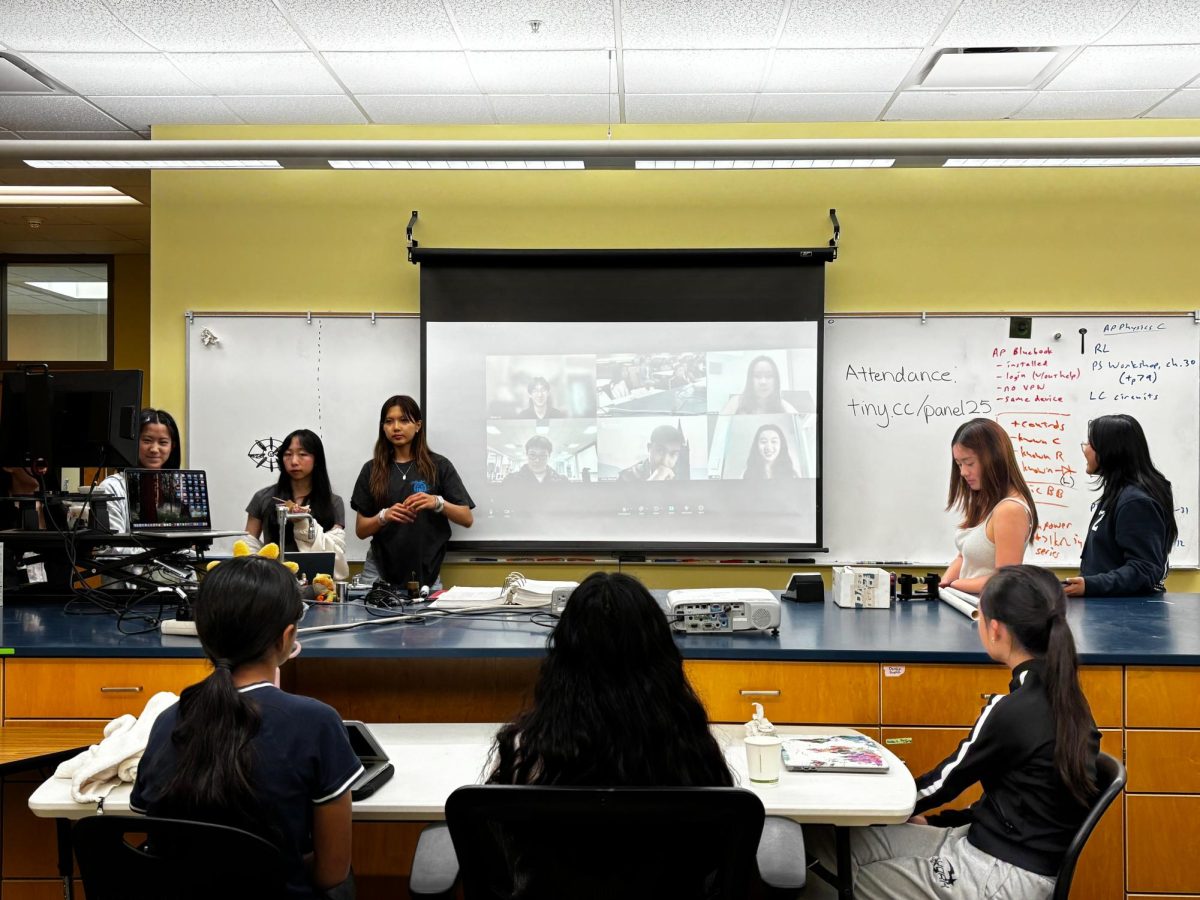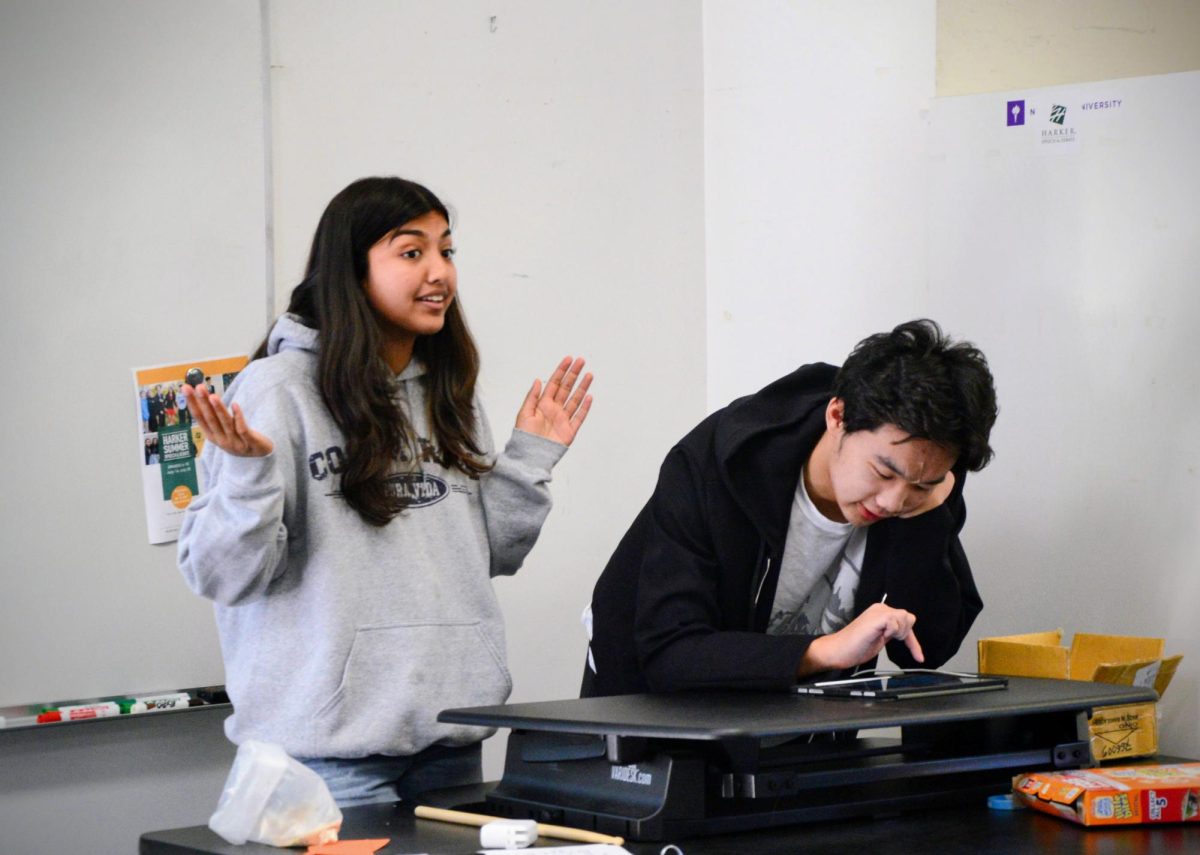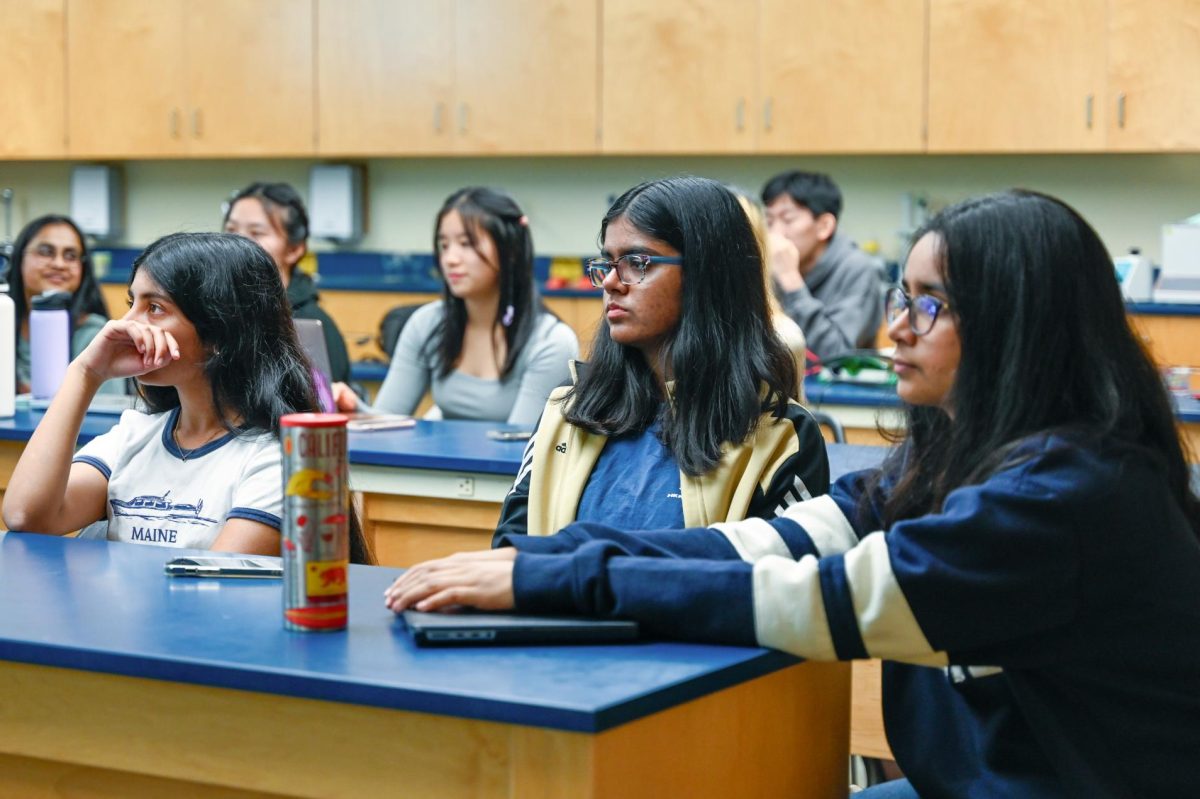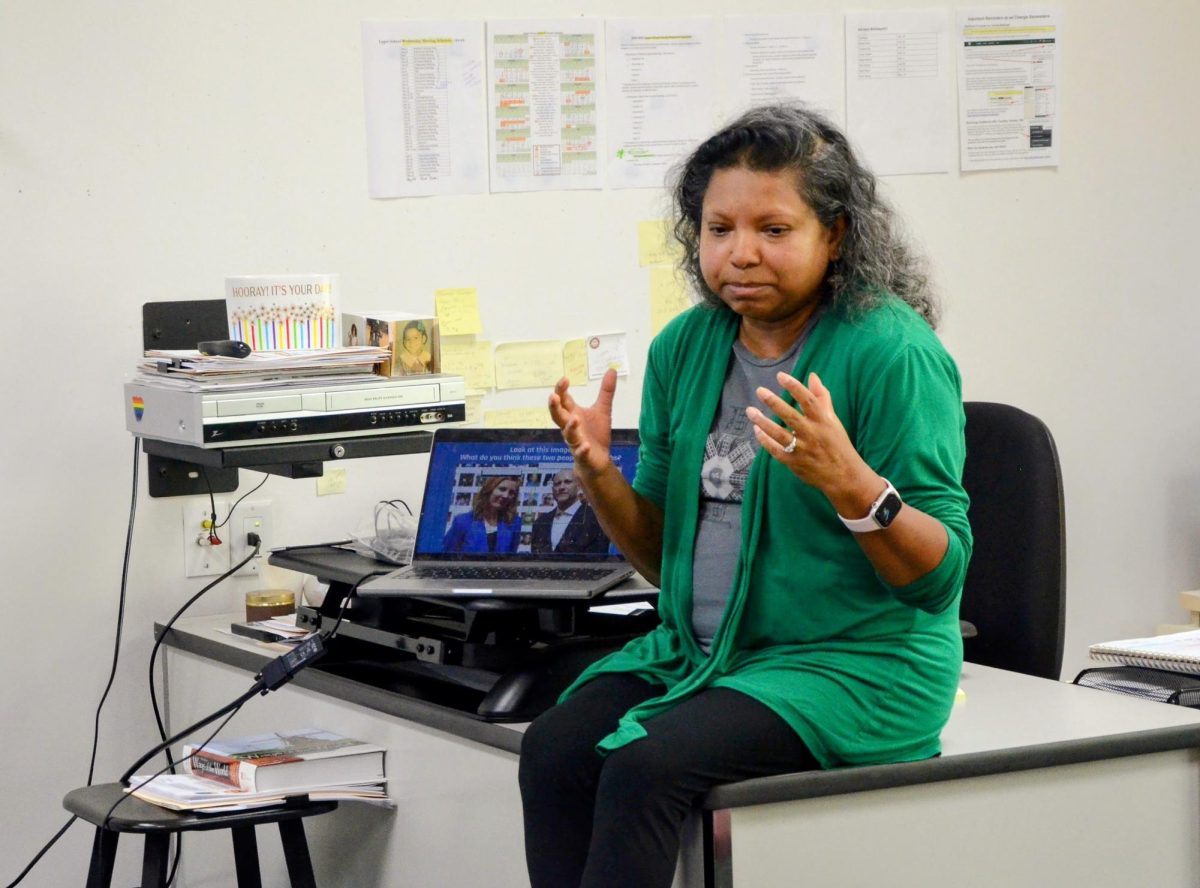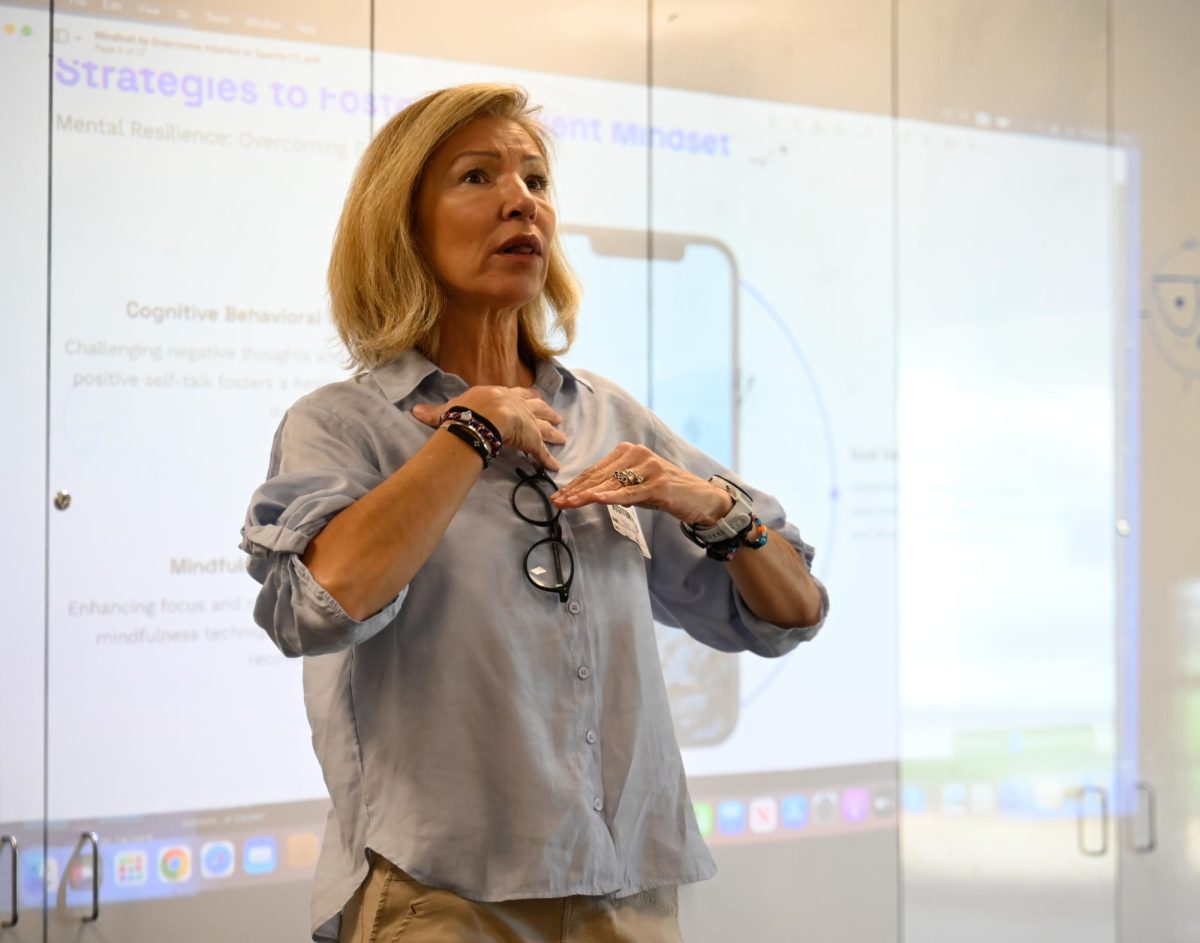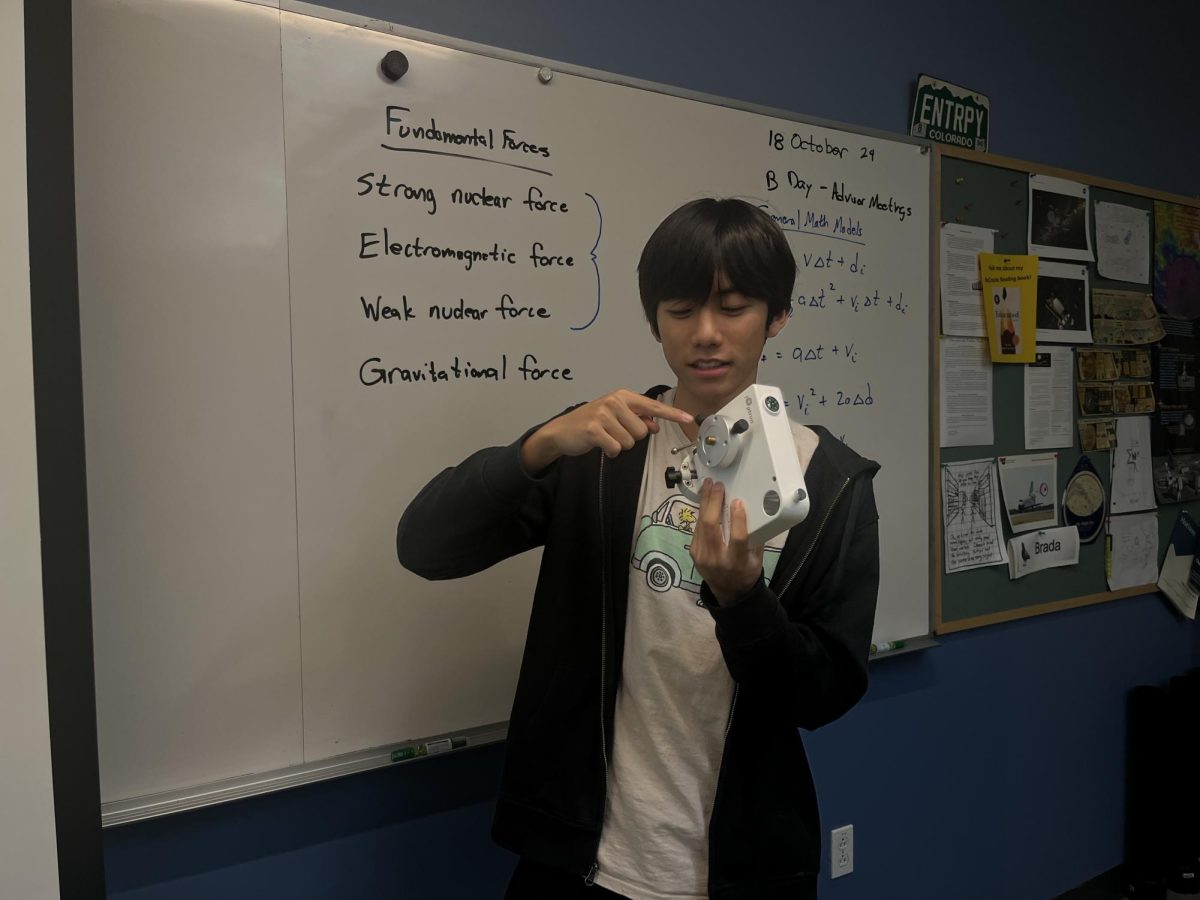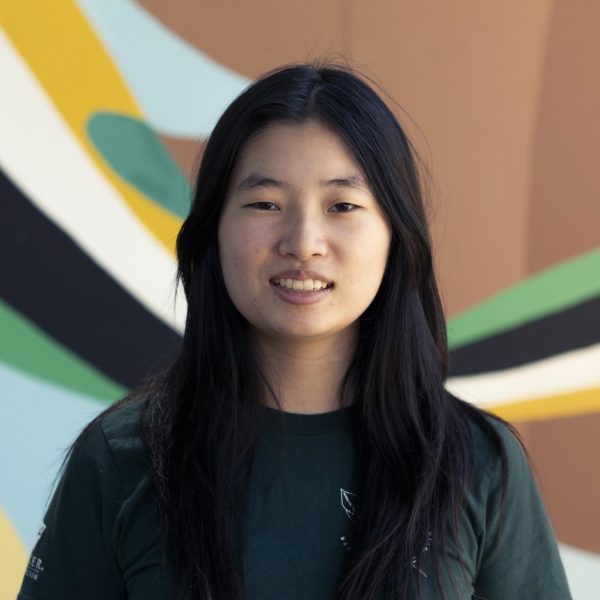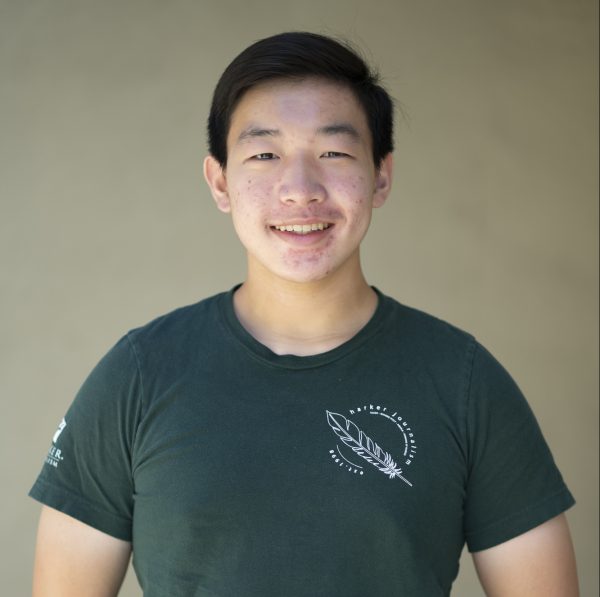Recent developments in Artificial Intelligence (AI) have taken the world by storm — and that includes the upper school’s selection of AI-related clubs. Alongside the pre-existing AI Club, the Artificial Arts and Beats & Bytes clubs have joined the lineup for the 2023-2024 school year.
The Artificial Arts Club, advised by upper school physics teacher Dr. Mark Brada, aims to take a deep look into how AI-generated creativity manifests. Mimicking inherently human abilities, like making art, proves no easy task. Especially with such an experimental genre of technology, Artificial Arts Club Vice President Jonny Xue (11) emphasizes his interest in the unique topic, reflecting on the club’s establishment and its goals going forward.
“There’s a niche intersection between AI and arts that we want [to explore],” Jonny said. “We want to create a space where we can see how AI generates various forms of art and creative content.”
Another new AI-related club this year is Beats & Bytes Club, which focuses on generating music using AI technology. Though music and AI may seem like two separate concepts, Beats & Bytes Club Vice President Varun Thvar (11) finds himself immersed in the potential of merging the two. As a cellist in the upper school orchestra, Varun has always had a passion for music, and he looks forward to sharing that with others through the club.
“From the beginning of time when human civilization first started developing, one of our major aspects was tool-using, and this is another tool that we can use to express ourselves,” Varun said. “The aspects of combining the best of our emotion and the best of our nature with the best of technology is very interesting to me. I want to share what I enjoy with other people and get to know the people who like it too.”
Through guest speakers, interactive AI art, music-generating activities and future collaborations with other organizations, both clubs hope to gain a place within the wide arrangement of other clubs at the upper school.
“With AI, you’ll keep ramping up and there will be better tools,” Jonny said. “There’s always ongoing discussion of how AI-generated content intermingles with all this human content. We hope we can play a role in that burgeoning discussion.”
Last but not least is the previously established AI Club, advised by upper school computer science teacher Marina Peregrino. In its meetings, the club hopes to teach attendees about Python and how certain AI algorithms can be implemented in research. While these topics may intimidate students who are inexperienced in AI research, Peregrino hopes the club can also shed light on more underappreciated AI training models that not many people prioritize.
“If a cat comes and pees in my garden and stinks up the place, it gets my dog barking, so I would [want to] put on a sprinkler that recognizes the cat and scares the cat away,” Peregrino said. “It was a little bit of a joke, but a little bit true. You don’t have to find an exoplanet or speed up the diagnosis of a certain thing; it could also be something that’s useful in the garden.”
Though the AI Club isn’t new, Peregrino looks forward to possible collaborations with any other AI-related clubs in the future. At this rate, she emphasizes, AI can go anywhere.
“Pretty soon the AI will rate the AI for you, and that’s very interesting,” Peregrino said. “How much is it really going to stay hands-on like this, where you choose the algorithm, you choose the data and you put it together yourself? Our goal is still the same, to support students who want to use it. It doesn’t have to be for research, it could be for whatever project they want.”


















![“[Building nerf blasters] became this outlet of creativity for me that hasn't been matched by anything else. The process [of] making a build complete to your desire is such a painstakingly difficult process, but I've had to learn from [the skills needed from] soldering to proper painting. There's so many different options for everything, if you think about it, it exists. The best part is [that] if it doesn't exist, you can build it yourself," Ishaan Parate said.](https://harkeraquila.com/wp-content/uploads/2022/08/DSC_8149-900x604.jpg)




![“When I came into high school, I was ready to be a follower. But DECA was a game changer for me. It helped me overcome my fear of public speaking, and it's played such a major role in who I've become today. To be able to successfully lead a chapter of 150 students, an officer team and be one of the upperclassmen I once really admired is something I'm [really] proud of,” Anvitha Tummala ('21) said.](https://harkeraquila.com/wp-content/uploads/2021/07/Screen-Shot-2021-07-25-at-9.50.05-AM-900x594.png)







![“I think getting up in the morning and having a sense of purpose [is exciting]. I think without a certain amount of drive, life is kind of obsolete and mundane, and I think having that every single day is what makes each day unique and kind of makes life exciting,” Neymika Jain (12) said.](https://harkeraquila.com/wp-content/uploads/2017/06/Screen-Shot-2017-06-03-at-4.54.16-PM.png)








![“My slogan is ‘slow feet, don’t eat, and I’m hungry.’ You need to run fast to get where you are–you aren't going to get those championships if you aren't fast,” Angel Cervantes (12) said. “I want to do well in school on my tests and in track and win championships for my team. I live by that, [and] I can do that anywhere: in the classroom or on the field.”](https://harkeraquila.com/wp-content/uploads/2018/06/DSC5146-900x601.jpg)
![“[Volleyball has] taught me how to fall correctly, and another thing it taught is that you don’t have to be the best at something to be good at it. If you just hit the ball in a smart way, then it still scores points and you’re good at it. You could be a background player and still make a much bigger impact on the team than you would think,” Anya Gert (’20) said.](https://harkeraquila.com/wp-content/uploads/2020/06/AnnaGert_JinTuan_HoHPhotoEdited-600x900.jpeg)

![“I'm not nearly there yet, but [my confidence has] definitely been getting better since I was pretty shy and timid coming into Harker my freshman year. I know that there's a lot of people that are really confident in what they do, and I really admire them. Everyone's so driven and that has really pushed me to kind of try to find my own place in high school and be more confident,” Alyssa Huang (’20) said.](https://harkeraquila.com/wp-content/uploads/2020/06/AlyssaHuang_EmilyChen_HoHPhoto-900x749.jpeg)



